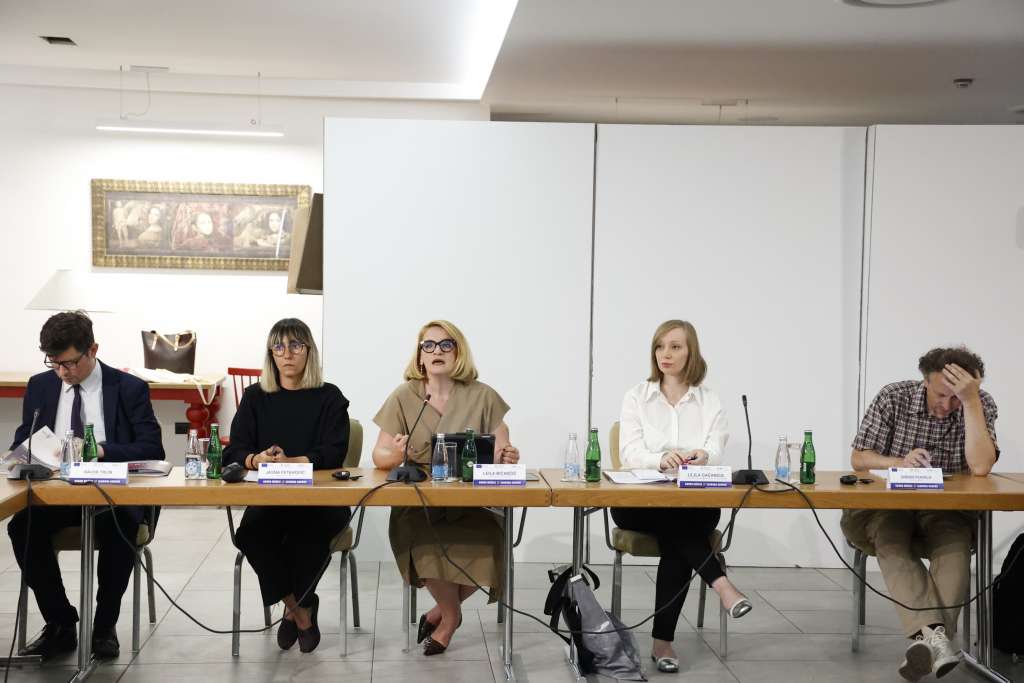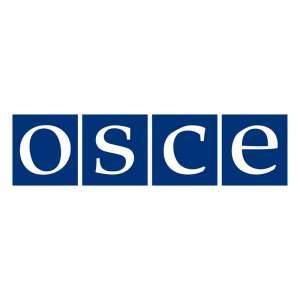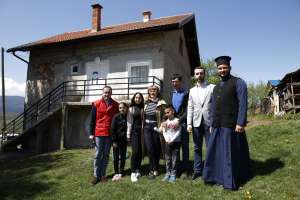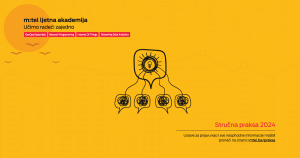SARAJEVO, June 14 (FENA) - The Center for Investigative Reporting (CIN) in Sarajevo gathered experts from various fields at a meeting in Sarajevo, to discuss the abuse of public space for various forms of hate speech directed against individuals and groups, and how sanctions can be tightened to adequately act against the spread of hate speech.
Director of the Center, Lejla Bičakčić, emphasized in a press statement that 120 cases of hate speech were registered in the media in BiH, and these were the worst examples of hate speech because, as it was pointed out, they did not record all of them. There were also a number of reactions that were characterized as the observed hate speech, but, unfortunately, there was no reaction from the judicial authorities.
“Hate speech as a problem is not something new, but we lack an opinion on how to sanction those who participate in hate speech, who initiate and spread it further because we are aware that social networks enable the spread of hate speech without control,” it was pointed out.
In BiH, hate speech is most prevalent on ethnic grounds (against members of ethnic groups), followed by women. The situation is similar in the region, she says. Areas where hate speech is most pronounced in the region also mainly concern ethnic groups or minorities within those countries, and hate speech is uniformly targeted at women.
“We also have an LGBT group. Migrants were also a target group for hate speech for a while, but this has been reduced in the years of the pandemic and there is room for women to be targeted the most, especially women in certain professions. Thus, journalists and women in politics are highly exposed. All of these are examples of hate speech that is characteristic for the entire region, and mostly the sources of hate speech come from politics, i.e. politicians are the first generator of hate speech that then spreads further through social networks,” she said.
She believes that, when it comes to the media, regulators must play a more significant and stronger role and be more present in the control of hate speech. This is said to be especially true for news portals, especially those that do not have an imprint or know where they are registered and the like.
Participants in today's meeting also concluded that the legal framework for hate speech in BiH is uneven and rather fragmented. Different types of laws govern this area. Thus, the BiH Criminal Code does not provide an explicit definition of hate speech and regulates it through several different articles, while other laws differ - from the prohibition of discrimination to the Election Law, which explicitly prohibits hate speech.
The round table, officially titled "Mechanisms for Protection against Hate Speech in Bosnia and Herzegovina", is part of a project funded by the European Union and The Balkan Trust for Democracy with the support of the Embassy of the Kingdom of Norway in Belgrade. CIN worked on the project together with media organizations in the Western Balkans.
(FENA) A. B.












